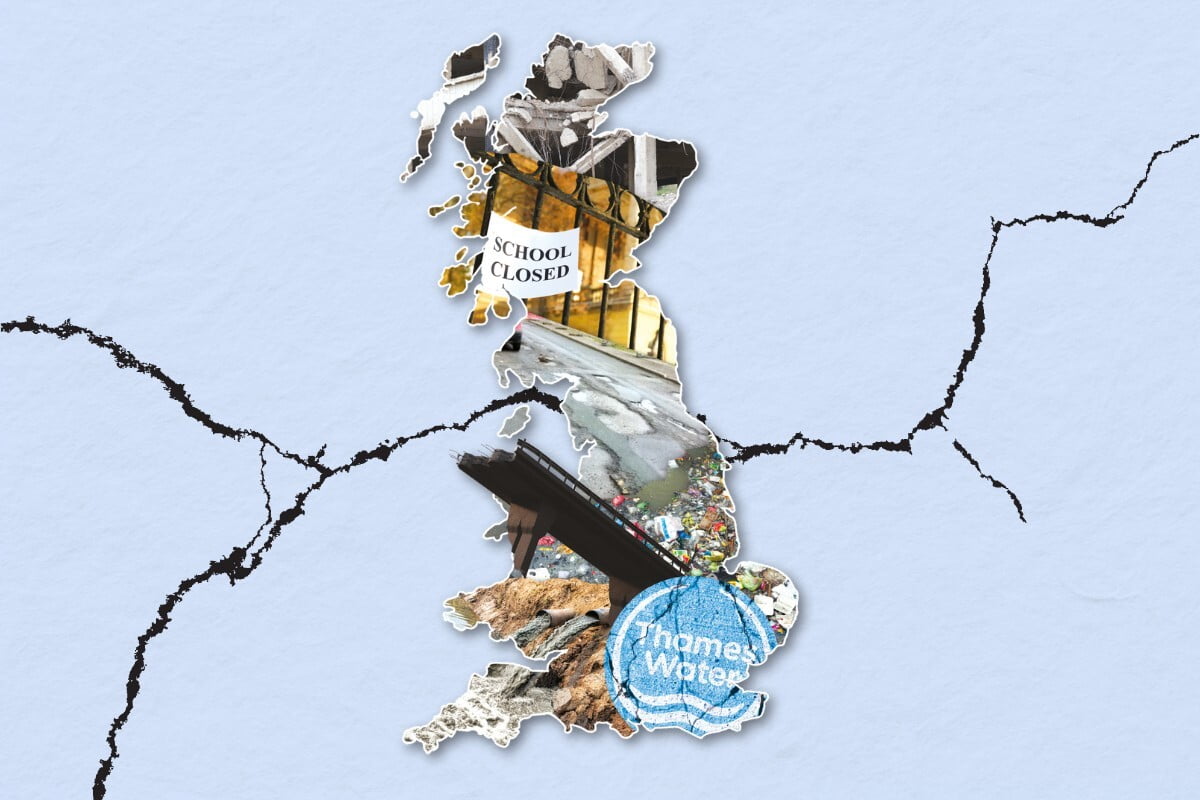On 23 October, residents of Caerphilly, a town in South Wales, turned out in record numbers to vote in a by-election for the Senedd, the devolved Welsh Parliament. Plaid Cymru’s Lindsay Whittle was elected, on an unprecedented turnout of over 50 percent.
While just a single constituency, this result has far-reaching implications.
It is often remarked that the Welsh Labour Party is the most successful political party in history. Labour’s dominance in Wales has remained practically unrivaled for over a century – until now.
Caerphilly has elected a Labour representative to the Senedd in every vote since the Welsh Parliament was created in 1999. And it has returned a Labour MP to Westminster in every general election since 1918.
At this by-election, however, the combined vote of Britain’s two main parties, Labour and the Tories, totalled just 13 percent. Plaid and Reform UK, by contrast, together secured 83 percent of the vote.
What we’ve witnessed in South Wales, in essence, are the tremors signalling a coming political earthquake. Caerphilly was one the safest seats in the country for Labour. Now all of the party’s strongholds look vulnerable – not just in Wales, but across the whole of the UK.
Status quo crumbles
In recent years, everywhere, there’s been an enormous collapse in support for the traditional lieutenants of British capitalism, and a yearning for those who appear to challenge the status quo.

In many areas across Britain, for example, the Green Party is looking to emulate the success of Plaid in taking votes and seats off of Labour.
The election of ‘eco-populist’ Zack Polanski as Green leader has helped galvanise a huge surge in support towards the party.
By coming out swinging against Keir Starmer, with focus on the cost-of-living crisis, inequality, and the genocide in Gaza, Polanski has gained a notable echo, especially among the youth.
This same anti-establishment mood lay behind the strong showing for Plaid and Reform in Caerphilly – a potential harbinger of further political shocks at the Senedd elections next May.
Empty promises
At the same time, turnout was no doubt boosted by those voting to prevent Reform from winning. It is no coincidence that, in his victory speech, Plaid’s Whittle triumphantly declared that “we’ve beaten billionaire-backed Reform and, with the same determination, we can do it again in May 2026.”
Nevertheless, despite coming in second, Reform are also claiming the result in Caerphilly as a win. Having garnered just 2 percent of the vote in the constituency in the 2021 Senedd elections, the jump to 36 percent this time around has put the wind in the sails of Farage’s party.
Caerphilly Senedd By-Election Result:
🌼 PLC: 47.4% (+19.0)
➡️ REF: 36.0% (+34.2)
🌹 LAB: 11.0% (-34.9)
🌳 CON: 2.0% (-15.3)
🌍 GRN: 1.5% (New)
🔶 LDM: 1.5% (-1.2)
🐉 GWL: 0.3% (New)
💷 UKIP: 0.2% (New)Plaid Cymru GAIN from Labour.
Changes w/ 2021.— Election Maps UK (@ElectionMapsUK) October 24, 2025
Across Britain, Reform has consciously targeted particularly downtrodden areas that feel ‘left behind’ by successive governments. It is by no accident, for example, that Farage launched his party’s 2024 general election manifesto in Merthyr, where around one-third of children live in poverty.
The largest voting bloc remains ‘none of the above’, however. 50 percent did not vote in the recent by-election.
Andrew Holmes, a 62-year-old cafe worker interviewed by the BBC, says he didn’t vote in the by-election because he has “lost faith in politicians”. Reflecting the mood of millions across the country, the disenchanted Welsh worker stated that “they promise everything and they just seem to be empty promises”.
Managing crisis
There is a profound sense of decay in South Wales and beyond. Workers everywhere have felt – and are still feeling – the squeeze of inflation. Former industrial towns, meanwhile, have seen the closure of major sources of employment like the Port Talbot steelworks.
Rather than mobilise a serious fightback, however, union leaders like Unite’s Sharon Graham have told workers to simply wait for the arrival of a Labour government at both ends of the M4.
But far from offering a solution, Labour is part of the problem. Despite now trying to distance herself somewhat from her English counterpart, Keir Starmer, Welsh Labour leader Eluned Morgan is rightly seen as just another career politician simply managing the crisis.
Tellingly, Starmer was completely absent in Caerphilly over the course of the recent by-election campaign. Labour officials in Wales no doubt recognised that the Prime Minister’s presence would have acted as the kiss of death.
Instability ahead
Following on from the local elections last May, the result in Caerphilly is the latest indication of a major fracturing of the political landscape in Britain.

Defending the status quo, or pushing business-as-usual politics, doesn’t cut it anymore. More and more, workers and young people are looking for a political alternative that can offer a way out of capitalism’s impasse – whether that be Plaid, Reform, or the Greens.
According to a Survation poll covering the by-election, of those in Caerphilly who voted for Labour at the 2021 Senedd elections, 26 percent have now switched to Reform. Meanwhile, 31 percent intend to vote for Plaid Cymru in the 2026 Welsh elections.
The Caerphilly result will also bring more immediate instability in Wales. In the Senedd, Labour now needs to swing two representatives from the opposition benches to vote for their upcoming budget in November. But it’s hard to see how anyone will want to be associated with a budget that will leave housing, social care, and education struggling.
What is needed instead, in Wales and across Britain, is a fighting class-based programme, based on the nationalisation and expropriation of the big monopolies, banks, and landlords. Only on this basis can we genuinely tackle society’s problems.
‘Progressive alliance’
Going forwards, no matter who sits in the Senedd, as the crisis of capitalism deepens, the working class must rely on its own strength.
Some on the left have talked about a ‘progressive alliance’ of Labour, the Liberal Democrats, Plaid, the Greens, and the faltering Your Party to ‘keep Reform out’ at future elections.
Starmer is already cynically looking in this direction. During the recent by-election, for example, on the drive into Caerphilly, there stood a huge electronic billboard that read “vote Labour to stop Reform”.
Such a strategy would be a disaster for the left on two accounts. Firstly, it would play into Farage’s hands, boosting Reform’s anti-establishment credentials.
Secondly, without clear anti-capitalist policies, any so-called ‘progressive’ coalition would be doomed. Any party in power that does not break from capitalism will have to carry out the diktats of the bankers and enforce the same cuts as previous governments.
And with the capitalist class unable to rely on their traditional political representatives as they once did, immense pressure will be exerted by the establishment on Plaid and co. to fall in line.
The Caerphilly result is significant for showing the rejection of the traditional political parties and their establishment agendas.
But it is not enough to say what you are against – you must also say what you are fighting for. Our answer must be a militant, class-based, revolutionary programme.






